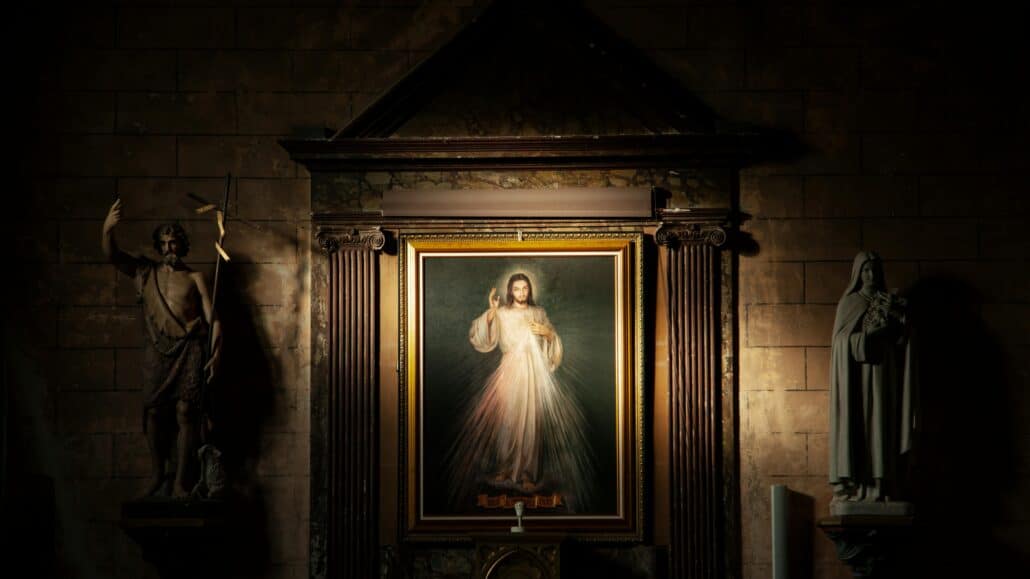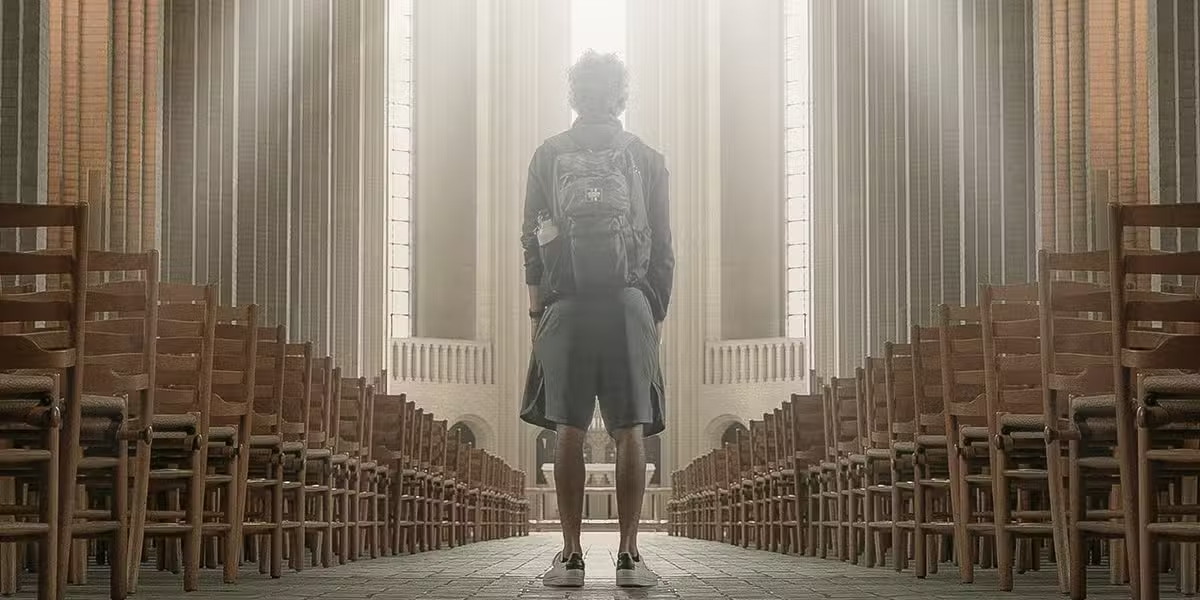Early in the Gospel of Mark (2:18-22), Jesus runs into a series of conflicts with the Jewish religious leaders. One such conflict involved the law of fasting. We know that in all religions (and even secular organizations, for that matter) there are certain rituals and practices that identify a person as a member. Not so many years ago, meatless Fridays were part and parcel of Catholics’ lives; it seemed everyone knew that about us. With the Jewish faith, fasting was one of those practices that set its members apart from all other groups. Now the basic law required all good Jews to fast twice a year. However, the Pharisees, those religious leaders who went way beyond the minimum, fasted not just two days a year but twice a week. In doing so, they separated themselves from the ordinary Jew and put themselves into a class of “holy” people.
Now when Jesus came preaching repentance and calling the people to look at their lives, it was utterly shocking for them to see that Jesus did not do any extra fasting. Even John and John’s disciples fasted. If Jesus was supposed to be this holy man, it was scandalous that he would do only the minimum required by the law. In their eyes an even greater sin for Jesus was to work—cure and heal—on the Sabbath. People in the Old Testament died at times rather than break that most holy day of rest. And here was Jesus with absolutely no qualms about healing on any day of the week!
Religious Practices Took On a Life of Their Own
Of course, as Jesus began his ministry, he knew he was facing certain external practices and attitudes that actually got in the way of the people seeing God for who he was. What had developed, and can develop in any religious group, was an attitude that the more you fasted (or rested on the Sabbath), the better you were. Not only that, but the belief was that when you did something for God, the more God was in your debt. Its sounds strange, but it is like someone saying to God, “OK, God. I fasted 40 days this year and it wasn’t easy. So, my question for you is: ‘What are going to do for me in return?’” When you really look at it, it was all backwards. God owes us something? Hardly.
Jesus wanted the people to know that God was loving and compassionate. They needed to know that all they had was God’s gift to them. Just to know Yahweh as their God was such a privilege and gift. If they were to do anything for the sake of God, it would not be to get something back but rather to make a gift to the God who had already gifted them with life and faith itself.
Religious Observances Prove Our Faith
As a matter of fact, it is one of the aspects of our own faith that is often misunderstood—not just by Protestants but even by Catholics themselves. The simple truth is that “works don’t save anyone.” We are saved by Jesus’ death on the cross and the gift of faith with which we have been blessed. No one “works” his or her way into heaven.
And it is absolutely true that “faith without works is useless.” Good works show our faith is true and sincere. We would never say, “Oh, I believe, therefore it doesn’t matter what I do.” That would be like one spouse telling the other, “Oh, I love you, but I don’t consider that requiring anything of me.” How absurd that would be, and how that would indicate that the first statement, “I love you,” was just a lie. As true Christians, we do not just need both faith and work. Our hearts tell us that we want both if we are to be authentic Christians.
Now this brings us to Lent. Lenten regulations today are very mild compared to those in the past. Fasting on Ash Wednesday and Good Friday and then abstaining from meat the six Fridays in Lent are hardly burdensome. In fact, for many, fish has become a staple of a healthy diet. So in terms of real penance, the restrictions are truly light.
But when it comes to fasting, we are dealing with much more than food. Look at Jesus. He fasted from the constant need to ensure his good name with the religious leaders. He fasted from his own security, putting himself at risk in preaching and healing. And, of course, he fasted from the power that was his as God— living on this earth “like us in all things except sin.”
Important New Ways of Fasting
Just think about what we could fast from in our own lives: 1) insisting we are always right in any argument; 2) controlling family members and others by means of anger or deadly silence; 3) relying on a clever but sarcastic tongue that we might think is cute but hurtfully cuts others, even loved ones; 4) wasting hours on the Internet when we could be doing something with our family. There are other examples, of course, but you may find that the above suggestions are much more challenging than cutting down on food.
People may regret that the rules are so lenient these days. Well, opportunities for lenten penances are not hard to find, and others may help us discover a couple if we have the courage to ask.








